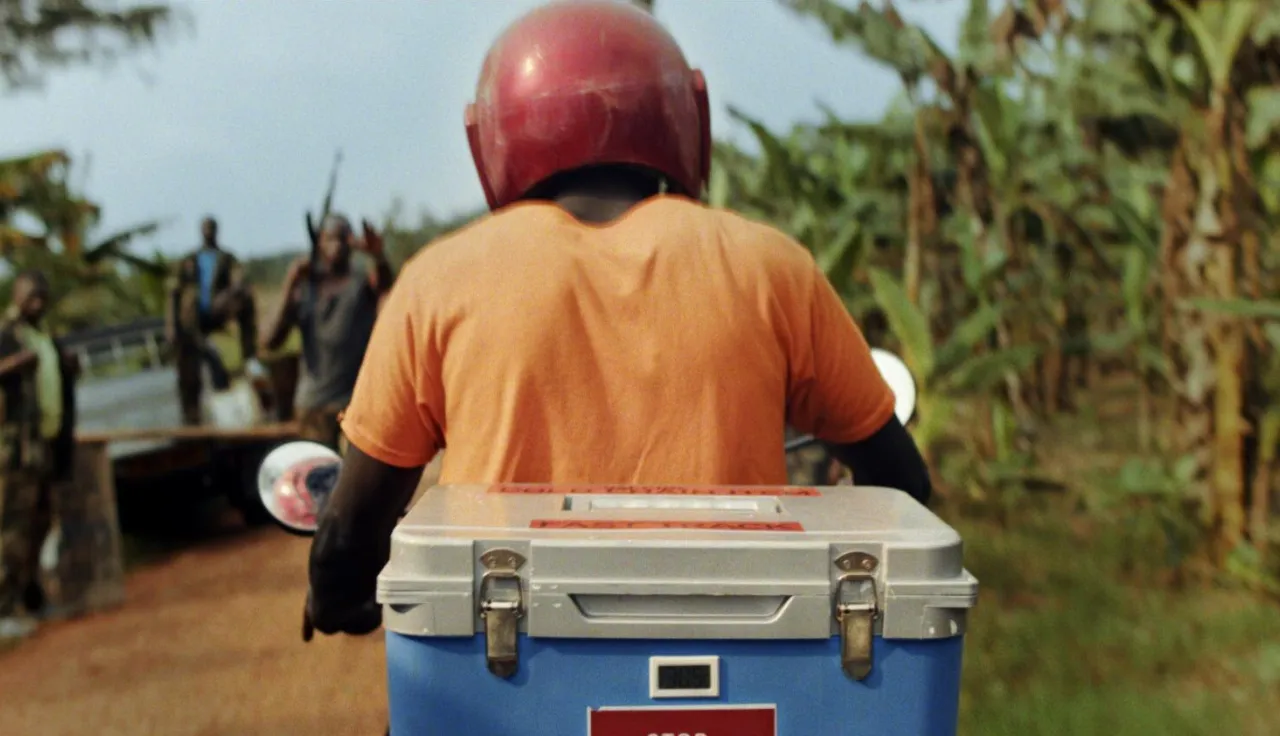COVID-19: People living in conflict zones cannot be forgotten in global vaccination effort

People living in warzones are at risk of being the very last in the world to have access to COVID-19 vaccines. Of the 25 countries with the lowest vaccination rates in the world today, more than half of them are embroiled in armed conflict and violence.
Geneva (ICRC) – Ahead of the World Health Assembly, the ICRC is shining a light on the millions of people who continue to be at risk from COVID-19: those living through conflict and armed violence who are yet to receive a single dose of a vaccine.
"Two years on, our fatigue around the pandemic cannot cloud the fact that it is not over and that new and potentially deadly virus variants remain a real threat to our return to normalcy and most importantly, human lives," Sophie Sutrich, head of ICRC's COVID-19 management team. "The Omicron variant shows what can happen when large pockets of people are unvaccinated, leading to viral replication and the possible emergence of variants that vaccines don't cover. Controlling this virus –and future viruses—will only be possible if we invest in health care systems and make sure that everyone is included in vaccination efforts, including those in hard-to-reach conflict zones."
The WHO estimates that the COVID-19 pandemic caused the deaths of nearly 15 million people globally, a devastating statistic that underscores both the urgency to make vaccines available to everyone and to invest in health care systems. Armed conflict takes a heavy toll on health care systems, leaving infrastructure damaged or neglected and complicating supply chains.
The ICRC, therefore, facilitates vaccinations in last-mile areas by helping gain access across frontlines through its neutral humanitarian work, and by helping with the logistics of transport and cold chains. Countries in conflict often have inherent challenges for carrying out vaccinations such as a lack of cold chain and storage capacities, a lack of electricity, poor health capacities due to a breakdown of health services, a lack of health personnel, and precarious infrastructure including difficult and underdeveloped road networks.
All too often in conflict zones, health care workers come under fire or are forced to flee. When doctors and nurses and the clinics and hospitals where they work aren't protected by parties to a conflict, their entire communities suffer. It often means people are left with nowhere to go to seek care, let alone COVID-19 vaccines.
The ICRC is working urgently to get vaccines in the arms of some of the most vulnerable populations, working with International Red Cross and Red Crescent Movement partners around the world to support COVID-19 vaccination in armed conflicts.
--
Operational examples:
Colombia:
The ICRC has negotiated in various occasions that the vaccination teams could access communities under influence of non-state armed groups for COVID-19 vaccinations.
Myanmar:
The ICRC in Myanmar has supported COVID-19 vaccination campaigns in health facilities near borders areas.
Mozambique:
The ICRC facilitates the transport of vaccines and Ministry of Health vaccination teams in conflict-affected districts in the central region and in the northern province of Cabo Delgado.
--
A campaign to raise awareness on vaccination in conflict zones
Today, the ICRC is launching a campaign, including a powerful short film, to raise awareness around this urgent issue.
https://www.icrc.org/en/covid-vaccine-last-mile
This campaign seeks to highlight the plight of the tens of millions of people along the last mile who may not be included in national vaccination deployment plans, due to lack of capacity and/or political will. These include persons displaced, detained, or living under the control of non-state armed groups (NSAG). Today, we estimate that there are more than 50 million people living in areas controlled by NSAGs, the large majority of whom have no access to COVID-19 vaccines.
Shots in arms
The ICRC firmly believes that access to COVID-19 vaccines should be unconditional – no political, financial, legal or logistical aspect should curb the efforts to reach the people in conflict and the most fragile settings.
Having vaccine doses available is only part of the solution to this crisis. We must ensure that the vaccine makes it from the airport tarmac into the arms of the most vulnerable. Specifically, the ICRC calls on governments, non-state armed groups, vaccine manufacturers and donors to:
- Help produce and deliver more vaccines for countries suffering from conflict;
- Provide greater investment in local delivery mechanisms and capacity to ensure vaccines leave the tarmacs of capital airports and reach people living across frontlines and remote areas;
- Integrate COVID-19 vaccinations into a broader health strategy which strengthens and supports health care systems weakened by conflict and underinvestment; and
- Recognize the fundamental principle under International Humanitarian Law of 'prevention of disease' as a medical purpose, including the administration of vaccines, to ensure access to all those living in conflict areas.
For more information, please contact:
Crystal Wells (English), ICRC Geneva, + 41 79 642 80 56
cwells@icrc.org



